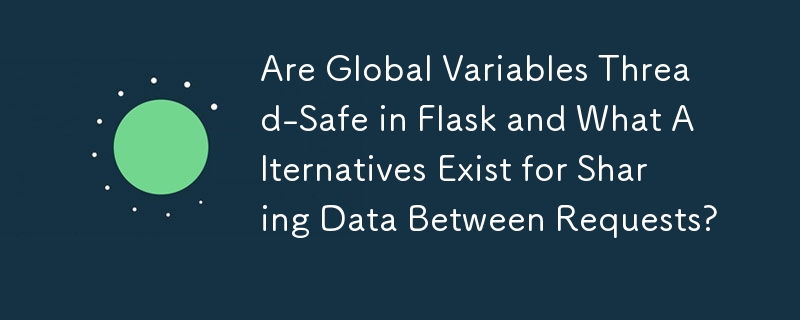

Online applications often require storing and manipulating data. Global variables provide a convenient way to share data across different parts of the application. However, when deploying an application on multiple threads or processes, concerns arise regarding the thread-safety of global variables. This article will explore the thread-safety of global variables in Flask and present alternative solutions for data sharing between requests.
Global variables are not intrinsically thread-safe, meaning that they can be accessed and modified by multiple threads simultaneously, leading to inconsistencies. In the context of Flask, where requests can be handled by different threads or processes, this can result in unexpected behavior.
The code snippet provided in the question demonstrates how a global object is used to store a shared parameter. When accessed concurrently, the expected increment of the parameter might not occur due to thread switching.
Considering the caveats of global variables, alternative solutions for managing shared data should be implemented:
Global variables are not recommended for sharing data between requests in Flask due to thread-safety concerns. By utilizing external data sources, Flask's session object, or the 'g' object, developers can implement robust solutions for data persistence and sharing.
The above is the detailed content of Are Global Variables Thread-Safe in Flask and What Alternatives Exist for Sharing Data Between Requests?. For more information, please follow other related articles on the PHP Chinese website!




